
Laura Sanders reports on neuroscience for Science News. She wrote Growth Curve, a blog about the science of raising kids, from 2013 to 2019 and continues to write about child development and parenting from time to time. She earned her Ph.D. in molecular biology from the University of Southern California in Los Angeles, where she studied the nerve cells that compel a fruit fly to perform a dazzling mating dance. Convinced that she was missing some exciting science somewhere, Laura turned her eye toward writing about brains in all shapes and forms. She holds undergraduate degrees in creative writing and biology from Vanderbilt University in Nashville, where she was a National Merit Scholar. Growth Curve, her 2012 series on consciousness and her 2013 article on the dearth of psychiatric drugs have received awards recognizing editorial excellence.

Trustworthy journalism comes at a price.
Scientists and journalists share a core belief in questioning, observing and verifying to reach the truth. Science News reports on crucial research and discovery across science disciplines. We need your financial support to make it happen – every contribution makes a difference.
All Stories by Laura Sanders
-
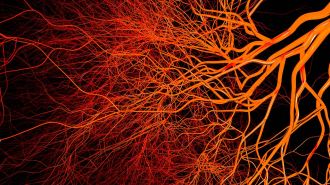 Neuroscience
NeuroscienceInjecting nanoparticles in the blood curbed brain swelling in mice
Nanoparticles divert inflammation-causing cells away from the brain after a head injury, a mouse study shows.
-
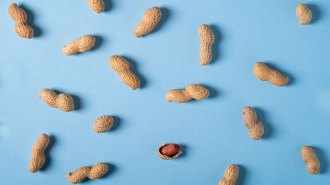 Health & Medicine
Health & MedicineThe FDA has approved the first drug to treat peanut allergies
The drug, called Palforzia, may reduce the dangers of unintentional exposure to peanuts for allergic children.
-
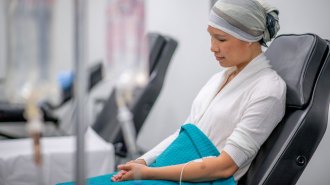 Neuroscience
NeurosciencePsilocybin may help cancer patients with depression and anxiety for years
A study hints that a hallucinogen found in magic mushrooms could reshape how people cope with hard diagnoses over the long term.
-
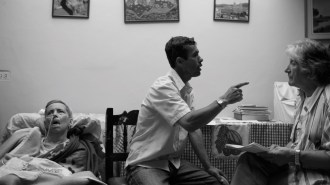 Health & Medicine
Health & MedicineHow one woman became the exception to her family’s Alzheimer’s history
A single mutation in a woman who evaded Alzheimer’s may point to new ways to treat the disease.
-
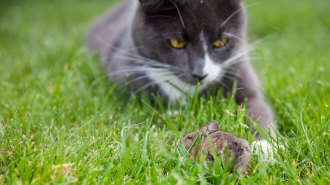 Neuroscience
NeuroscienceA parasite that makes mice unafraid of cats may quash other fears too
The parasite Toxoplasma gondii can mess with all sorts of mice behaviors and make the rodents fearless in many situations.
-
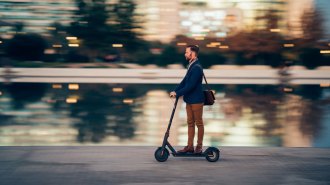 Health & Medicine
Health & MedicineElectric scooter injuries rose 222 percent in 4 years in the U.S.
Hospital admissions from accidents related to e-scooters grew from 2014 to 2018.
-
 Humans
HumansIn some languages, love and pity get rolled into the same word
By studying semantic ties among words used to describe feelings in over 2,000 languages, researchers turned up cultural differences.
-
 Neuroscience
NeuroscienceMice watching film noir show the surprising complexity of vision cells
Only about 10 percent of mice’s vision cells behaved as researchers expected they would, a study finds.
-
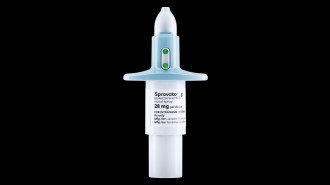 Health & Medicine
Health & MedicineIn 2019, a ketamine-based antidepressant raised hopes and concerns
Ketamine and related molecules might ease severe depression, but the drugs come with baggage.
-
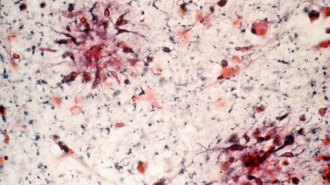 Health & Medicine
Health & MedicineA once-scrapped Alzheimer’s drug may work after all, new analyses suggest
An antibody that targets Alzheimer’s sticky protein amyloid showed promise in slowing mental decline, according to the company that’s developing it.
-
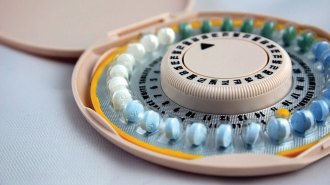 Neuroscience
NeuroscienceIs taking birth control as a teen linked to depression? It’s complicated
As researchers sift through conflicting data, no clear answers emerge on whether birth control during teenage years can cause depression later.
-
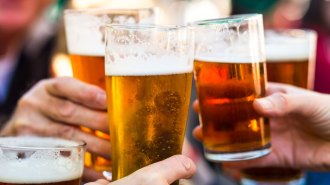 Health & Medicine
Health & MedicineA dose of ketamine could lessen the lure of alcohol
Ketamine may weaken wobbly memories of drinking, a trick that might ultimately be useful for treating alcohol addiction.